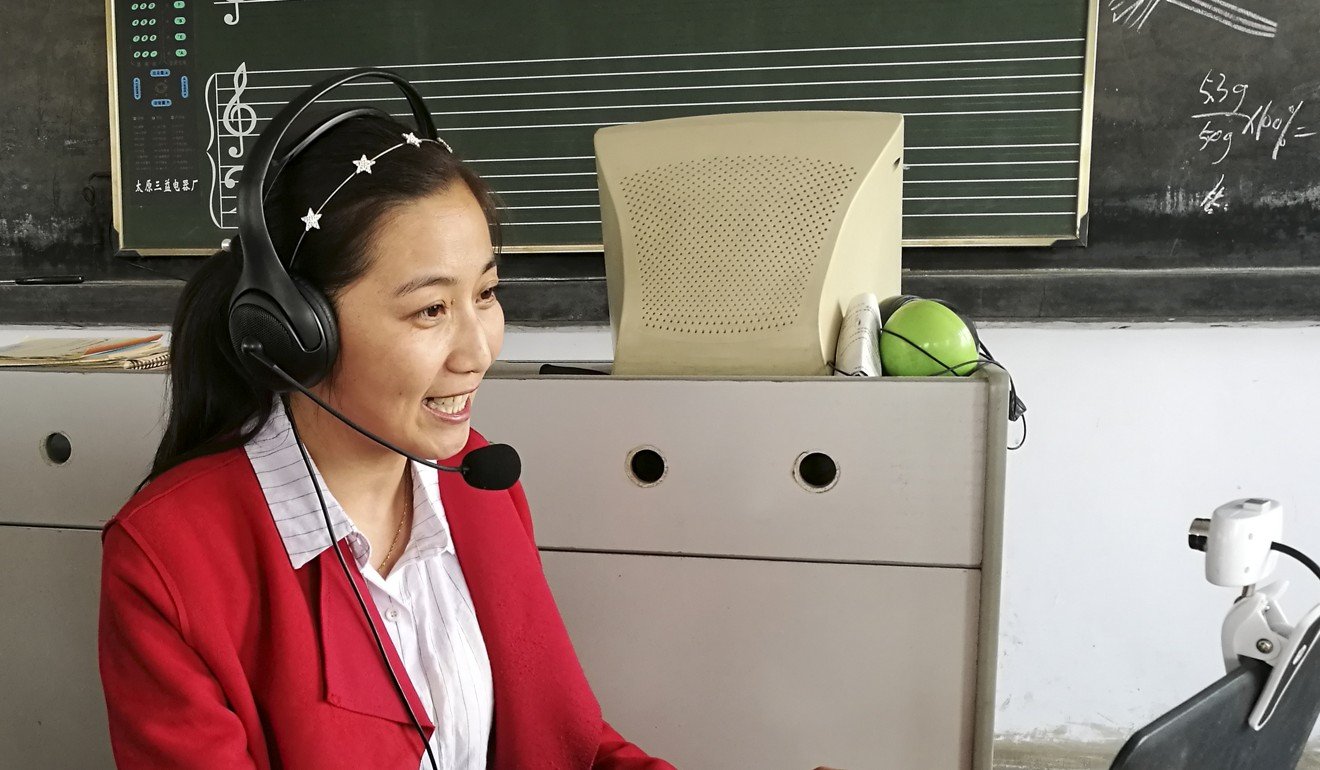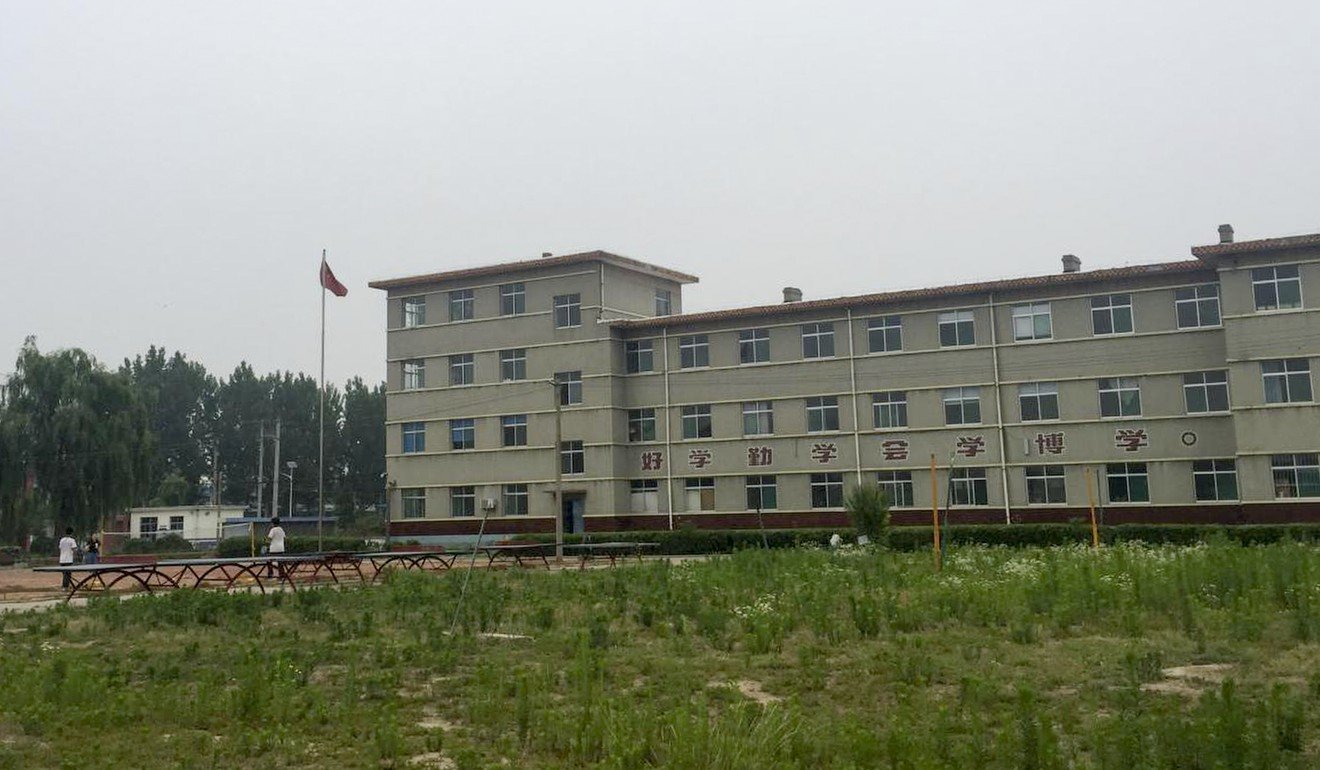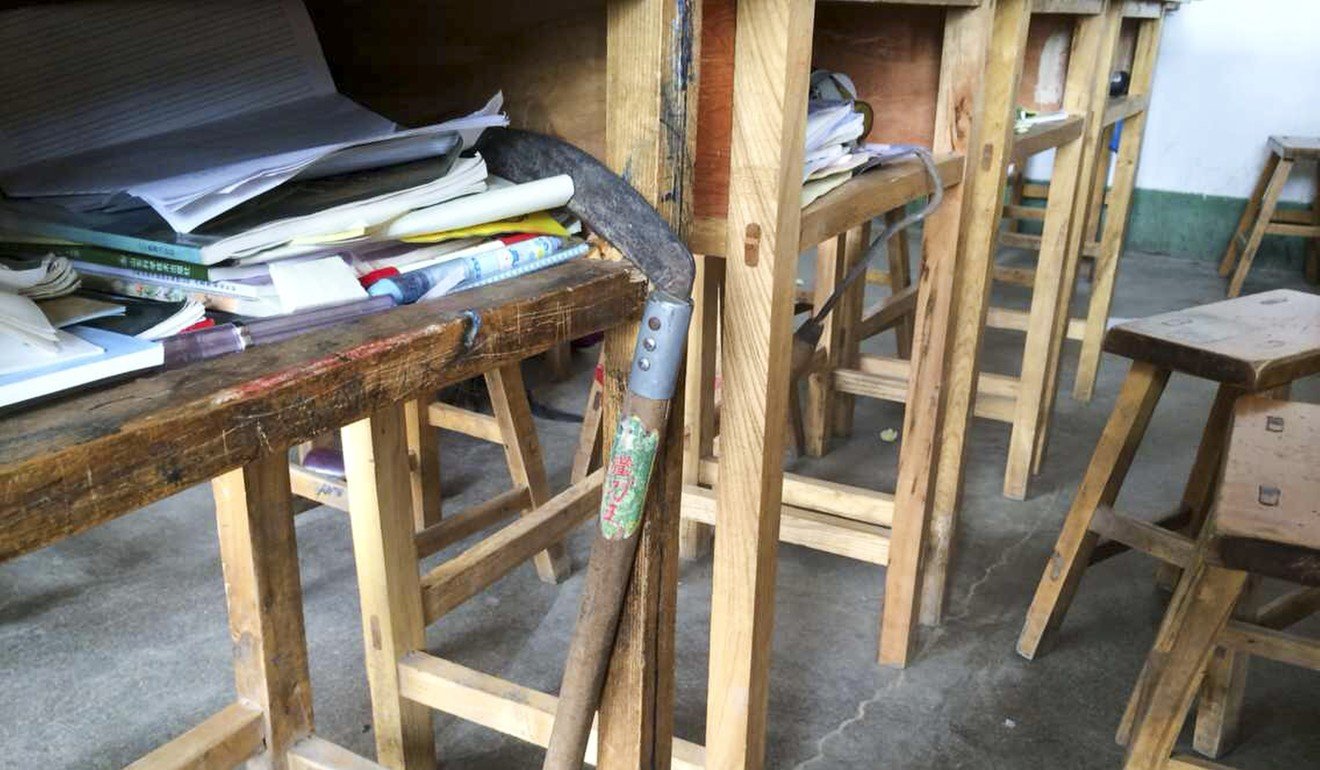
Could online classrooms be the answer to teacher shortage in rural China?
Lessons give pupils confidence and access to subjects such as English, says educator who teaches music to children across the country over the internet
One of the biggest barriers to educating China’s rural poor is finding enough teachers willing to take up jobs in remote and impoverished areas, but a group of tech-savvy teachers in the east of the country say they may have a solution.
Over the past 4½ years, Wang Fei and her colleagues have incorporated online lessons into their students’ timetables in various subjects including English, which was not previously offered at their middle school.
Students attend the lessons at school, where a projector screen is set up so they can see their teachers and classmates in other schools in real time via an online learning platform.
Wang was one of 100 educators presented with an award by the Jack Ma Foundation for her contribution to education in rural China at a ceremony on Sunday night in Sanya on Hainan Island. The award winners each received 100,000 yuan (US$15,500).
Jack Ma Yun, executive chairman of Alibaba Group, told the gathering that the foundation would work with more than 80 Chinese business leaders to promote the development of boarding schools in the countryside, where an estimated 60 million “left-behind” children – youngsters from poor families whose parents work in cities away from home – live. Alibaba is the owner of the South China Morning Post.
At Wang’s school in Huantai county, Shandong province, online lessons are now part of the schedule. The free classes are taught by experienced teachers, many of them based in cities, on a voluntary basis. The programme – run by the CCtalk online learning platform, from Shanghai-based company Hujiang EdTech – is open to all primary and middle school pupils in China with internet access.
“In the past, these rural students were using textbooks that had not been updated for a decade and all their teachers were pretty old,” said Wang, who teaches at the Xingjia Town Central Middle School. “Now, my students are gaining confidence – they’re getting a window on the outside world through these online classes.”

It also gives students the opportunity to take subjects that the school cannot offer. It has not had an English teacher on staff for years, Wang said, but now pupils in Xingjia can learn the language online.
The classes have developed the children’s online research skills and they have learned to make powerpoint slides and put together videos, she said. That has given the students – many of whom had very limited access to education and resources previously – more confidence.
“I want to empower them to acquire the latest knowledge and skills so they can fit easily into society when they finish school,” Wang said. “Now when they interact with city kids, they don’t feel any different.”
Wang teaches music, her major, in her online classes, which are beamed to students living in impoverished regions in the southwest, in Sichuan and Yunnan, and the central province of Henan.
She has taught Chinese and music at the school for more than 10 years and said when she came across the online learning platform for the first time in 2012 it was “an eye-opener”.
Back then, it also made her anxious as she was suddenly under scrutiny and worried about how she was teaching Chinese, even though she had taught the subject for five years.
“I learned music at college and went on to become a rural teacher. For rural teachers, there are few training opportunities, so I really didn’t teach well,” she said.

Wang’s story is common in rural China, where primary and middle schools are in such dire need of teachers that young graduates are often hired for the job even if they do not have teaching qualifications or experience.
They are poorly paid, and despite government measures to attract and retain more rural teachers – including higher salaries, subsidies and even free education for trainees who commit to working in rural areas for a certain period – the numbers are getting worse. According to the most recent data, there were 4.7 million rural teachers in 2010, but that fell to 3.3 million in 2013, China News Service reported.
Online learning could be the answer, Wang said.
“In rural schools, there are teachers who teach well, and there are others who don’t. Some schools don’t offer subjects like music or art because they can’t get the teachers for those subjects,” she said. “Now we have the internet, we can actually do something about this.”
The classes are also in line with the Ministry of Education’s strategy of connecting rural schools with “open and excellent teaching resources”. Some 87 per cent of primary and middle schools in mainland China had access to the internet by 2016, according to the ministry.
Wang and several other teachers at her school started the online learning trial in September 2013. At first, it was a case of allocating class time to online learning and arranging for students to take part in forums after school.
Now the set-up is more structured, and classes are taken at the school at set times. Wang said they are also a learning process for her – she hands over teaching of her more difficult Chinese classes to educators with more experience and training. She is still in the classroom, maintaining order and encouraging the students to answer the online teacher’s questions.

“The online classes take place in real time, so the students can interact with the teachers,” Wang said. “So if my students answer the questions correctly and they’re praised by the teachers, they are thrilled because they’re being praised in front of hundreds, if not thousands, of students from across the country.”
Xia Huixian, dean of Shanghai Normal University’s school of education, said online learning was a good way to get around the teacher shortage and lack of qualified educators in rural schools.
“But rural teachers shouldn’t stop trying to improve – building these important teaching skills isn’t easy,” Xia said.
Li Tao, an academic from the China Rural Development Institute at Northeast China Normal University in Changchun, Jilin province, agreed that online learning was a good way to use resources, but said it should not become a substitute for traditional face-to-face teaching.
“Education is more than just knowledge being passed from teachers to students – learning also comes from a teacher’s behaviour and their personality,” Li said. “These interactions between teachers and students, as well as among students, are lost when classes are held via machines and screens.”
Li added that teachers would not be able to give individual attention to students in the online sessions because of the size of the classes.
Xiong Bingqi, deputy director of the 21st Century Education Research Institute in Beijing, was not sold on the idea of online learning as a solution to the teacher shortage in the countryside, noting that it was important for children to be taught by someone who was actually in the classroom.
But ultimately, he said, rural areas were crying out for more resources. “The authorities should put more resources into rural education,” Xiong said. “I think salaries for rural teachers should be doubled at least so that the job is more appealing.”

